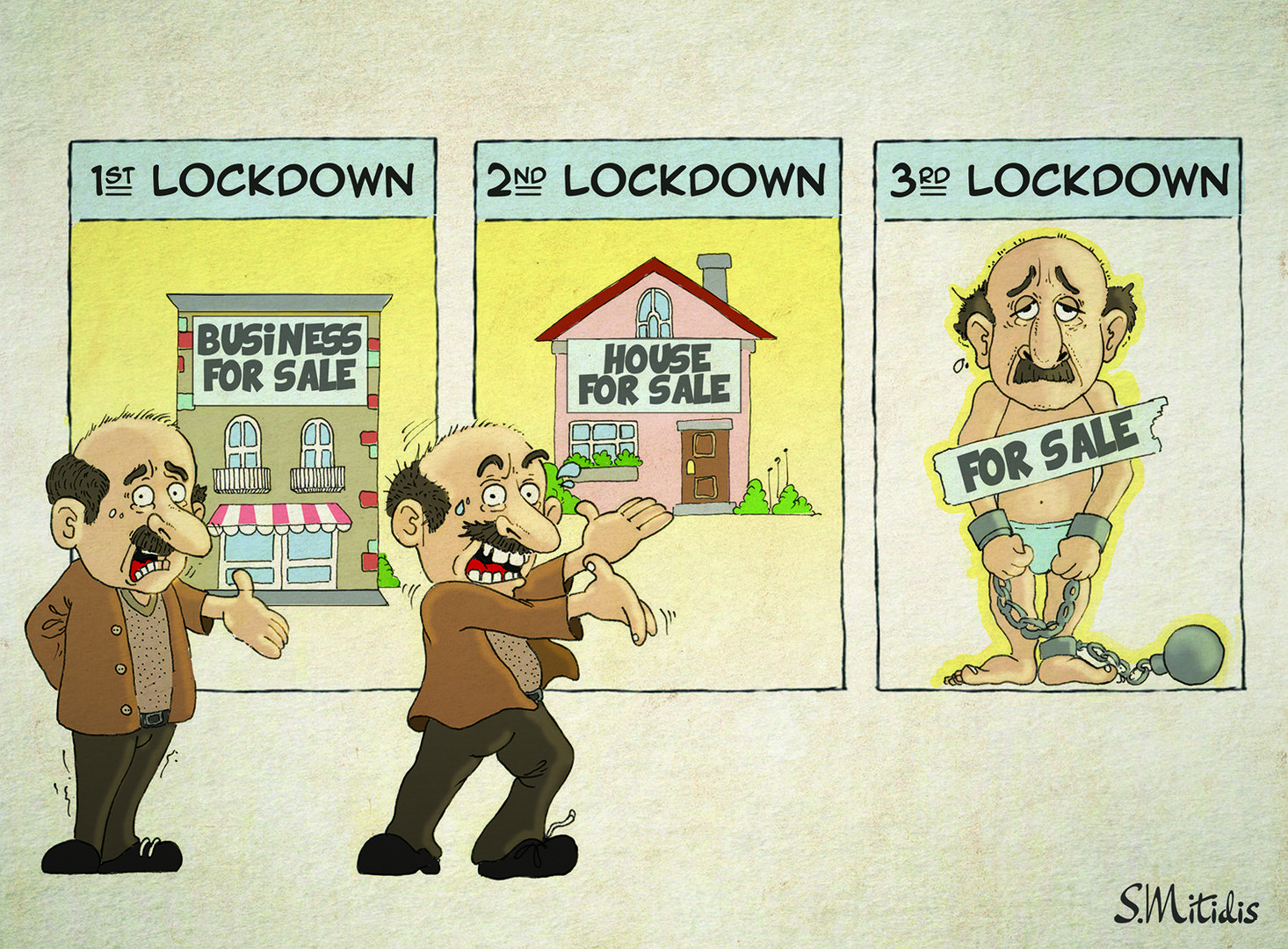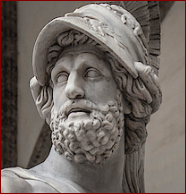THINGS could not get any worse for Prez Nik than they did in the last week, when he ended up having to defend himself against scurrilous rumours that most of the population seems to have unquestioningly accepted as the unadulterated truth, which it was quite clearly not.
There was not a shred of evidence to back the wild allegations made by Andreas Paraschos in an article last Sunday in Kathimerini, in which he wrote Nik had revealed at a gathering in Athens that from the citizenship by investment programme, his law office made €300 million, which he then took to the Seychelles on private flights.
Kathimerini published an apology the following day on behalf of Paraschos, its long-serving director, in which it said it “mistakenly reproduced rumours relating to the president that were not substantiated by the necessary evidence.” Paraschos, claimed he had nothing to do with the retraction and duly resigned from the paper.
It was the worst possible development for Nik because the resignation letter, posted on social media, attracted even more attention to the rumours and turned Paraschos into a folk hero, being invited to radio and television stations and becoming the number one news story.
Even Greece’s former prime minister Alexis Tsipras was dragged into the story, the resignation letter having claimed that Nik had made the revelations in his presence. Tsipras was forced to issue a denial, saying such a conversation had never taken place. Paraschos’ allegations were in tatters, but this did not help Nik in any way which says it all about his credibility.
IN EFFECT, Paraschos had alleged the Prez of the Rep had committed two major criminal offences – tax evasion and money laundering. He made €300m that he did not declare and then transferred this money (was it in sacks or boxes?) on a private jet to the Seychelles.
Journalistically speaking, you cannot accuse anyone, let alone the head of state, of committing such serious crimes, without providing a shred of evidence, but basing it on hearsay – ‘he said it in Athens, when he was tipsy, and someone who heard him told me.’ This was nothing more than gossip and Nik was right to dismiss it as reproduction of “malicious false publications or whispers.”
Astonishingly, most people believed it, nobody asking for concrete evidence. Did anyone have a statement of Nik’s Seychelles bank account, had anyone photographed big crates being loaded on to a private jet, was there a recording of Nik making the notorious boast, which nobody admits hearing?
It was a pretty weak story, but Paraschos found plenty of backers, including the journalists’ union which met urgently and issued a statement lamenting the “diminishing of press freedom”, censuring the “forced resignation” and saying the event “wounded, particularly freedom of expression and freedom of the press.” Am I to conclude that the law has now changed and we can write whatever we want, including lies and slander about whomever we want, with impunity, in the name of press freedom? This is great news if it is true and not something a judge said in Athens when he was tipsy.
THE TRAGEDY for Nik is that his credibility and trustworthiness have sunk to such depths that people are more willing to believe the gossip peddlers rather than him and a former Greek PM. Social media are awash with comments by people that have taken Paraschos’ gossip as the gospel truth and there is hardly anyone defending Nik.
He has a serious problem and he is smart enough to know it. Even trying to defend himself with rational arguments as he had done in a letter sent to the journalists’ union does not work. “Since when does, through publication, the spread of fake news or forged rumours, without research or substantiation, constitute part of the pluralism of views?” he asked the union. How would the union have responded if he claimed, without substantiation, but based on what he heard, that a journalist was taking money from foreign services, he asked.
Perfectly legitimate points but rational arguments are unlikely to get him anywhere because the story is judged on prejudice rather than facts. Is there anything he can do to change this negative public perception? He can stop talking about it and trying to convince people that Paraschos had no evidence.
Hopefully, he will not go on television like he did after the Al Jazeera passport story broke and repeat his assertion that “I am immaculate and unblemished and I want to be absolute…” A better idea might be to accuse Espen Barth Eide of spreading the rumour as he had done for the two-state solution.
SURPRISED that the meddling auditor-general, Odysseas has not yet announced that he will carry out an investigation into the allegations made by Paraschos. The matter is right up his street because there are claims of tax evasion. If earnings of €300 million were taken out of the country as air freight, without any tax being paid, surely, he has a duty to carry out an investigation.
The state would have been denied tax revenue worth tens of millions of euro, which any auditor-general worth his salt would try to recover, so why has Odysseas, who chases even a few cents of lost tax revenue, avoided doing anything? It is a great opportunity to get one over the prez who has been trying to limit the powers Odysseas has vested in himself.
YOU HAD to feel great sympathy for the hapless finance minister Constantinos Petrides, using rational economic arguments to persuade the political parties to approve the state budget. His efforts are like those of Sisyphus rolling the rock to the top of the hill, only to see it roll back down when he got the top.
He was rolling the rock up the hill again on Friday, telling the House finance committee that if the budget was not approved, there was a real danger Kyproulla could default on its debts. Without approval of the budget, there was a danger government bonds would return to junk status and we would lose our access to the markets, thus being unable to service our debts, warned Petrides.
This was too lofty an argument for our economically illiterate deputies to grasp and the rock rolled back down the hill. But they would have understood that the revised budget included additional expenditure €339.9m and incorporated 27 of the 36 amendments made by the parties. This the most surreal aspect of the budget – parties make amendments and then vote against it.
None of the arguments put forward by Petrides will have made the slightest bit of difference. Approval rests on Dr Sizopoulos, being satisfied with what he was promised behind closed doors and delivering Edek’s three votes. Otherwise, the government might have to hand over the passport files to Odysseas as Junior has been demanding in exchange for Diko’s votes.
HAPPY to see the government is making some very tiny steps in relaxing the restrictions on free movement. On Friday it announced an addition to its decree about movement, saying that Get out of jail card Number 6 – physical exercise – would be expanded to allow travel to districts other than the one you live in.
In other words, they permitting us to go on excursions, on the pretext we are doing it for physical exercise. A Nicosia resident can now drive to the beach or the mountains for physical exercise, with one more adult, for a “reasonable period of time,” as long as they return by 9pm when the curfew begins.
This is a clear admission that the repressive measures announced 10 days were excessive and are now being relaxed. We can now get in the car and drive anywhere we like as long as there is a footpath or a beach in sight, for physical exercise. Presumably we will have to take a photo doing the physical exercise and send it by SMS to 8998 for approval.
Like in any police state, the regulations are in great detail. “Individuals are allow to go for physical exercise or individual training to park, linear parks, beaches and nature trails of the forestry department.” If you are found on a non-forestry department footpath, you will be fined.
APOLOGIES for exposing my literary ignorance last week and attributing the quote “Oh what a tangled web we weave…” to Shakespeare. More than one person pointed out to me that it was Walter Scott who said it. I did not check the source, making the mistaken assumption that because it was really clever and eloquent it must have been Shakespeare. More fool me.







Click here to change your cookie preferences